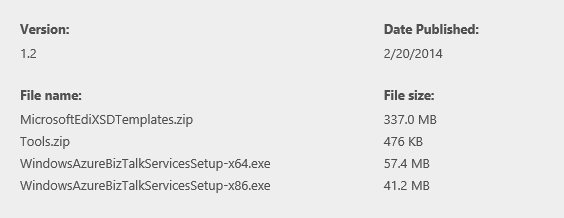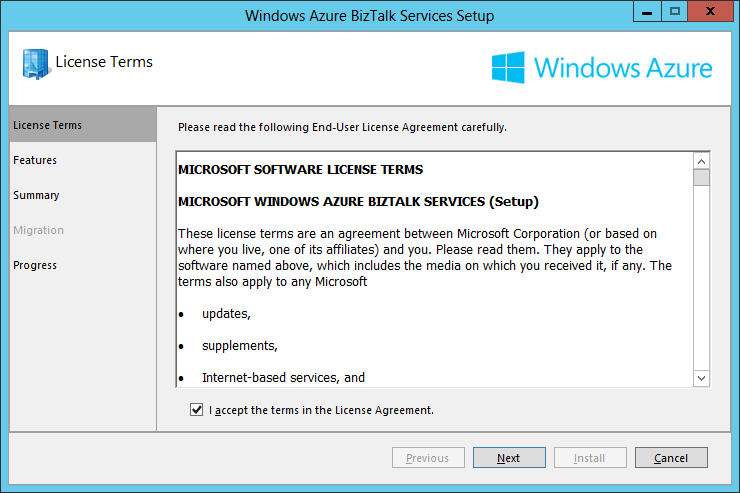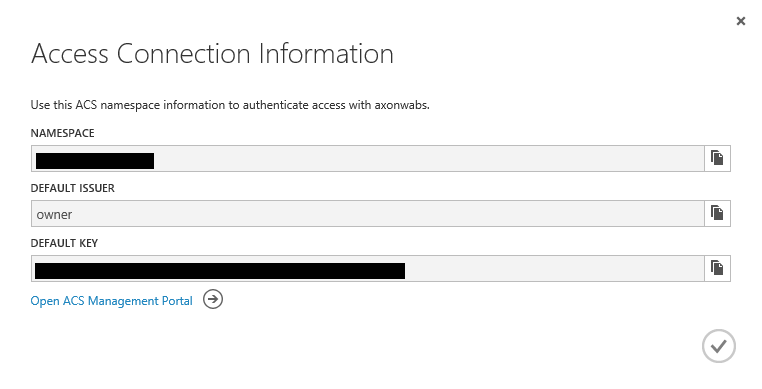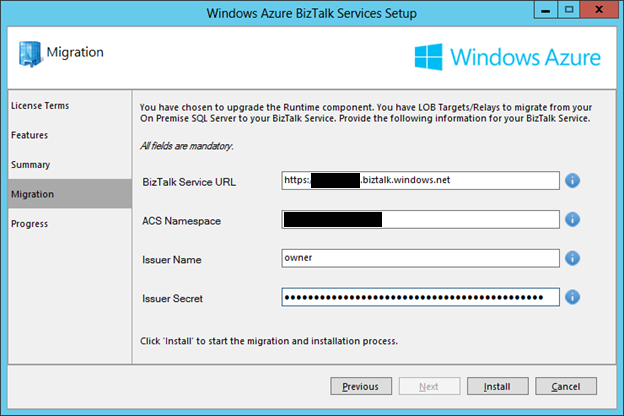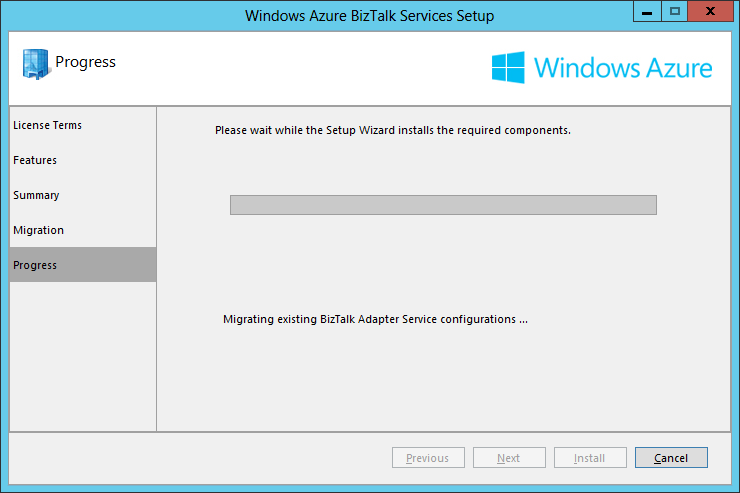February 20 many new enhancements on Windows Azure were announced. Also Windows Azure BizTalk Services (or WABS) contained a number of improvements and extensions.
New features
Although this article is about the installation of the February 2014 release and migrating your earlier created BizTalk Services, I’ll first summarize the new features of this version of the SDK.
Download
The installation files can become downloaded from this location:
http://www.microsoft.com/en-us/download/details.aspx?id=39087
Besides 32- and 64-bits installers of the SDK, you can also download EDI templates and a zip which contains 2 utilities, namely a BizTalk Map to BizTalk Services Map converter and a tool to migrate your BizTalk 2010 trading partners to BizTalk Services!
Installation
Let’s start the installation by starting WindowsAzureBizTalkServicesSetup-x64.exe.
Accept the license agreement and click Next
Check if all prerequisites are met, select all checkboxes and click Next
As I have already installed the November 2013 SDK, the installer shows which components are already up to date and which components will be upgraded. Click Next to continue.
Part of the installation of this SDK, is the migration of your LoB Relay(s) and LoB Target(s) from your on premise database to your BizTalk Service. Copy the Namespace, Default Issuer and Default Secret of your BizTalk Service and paste them in the Installation Wizard.
Click Install
The installation is finished!
